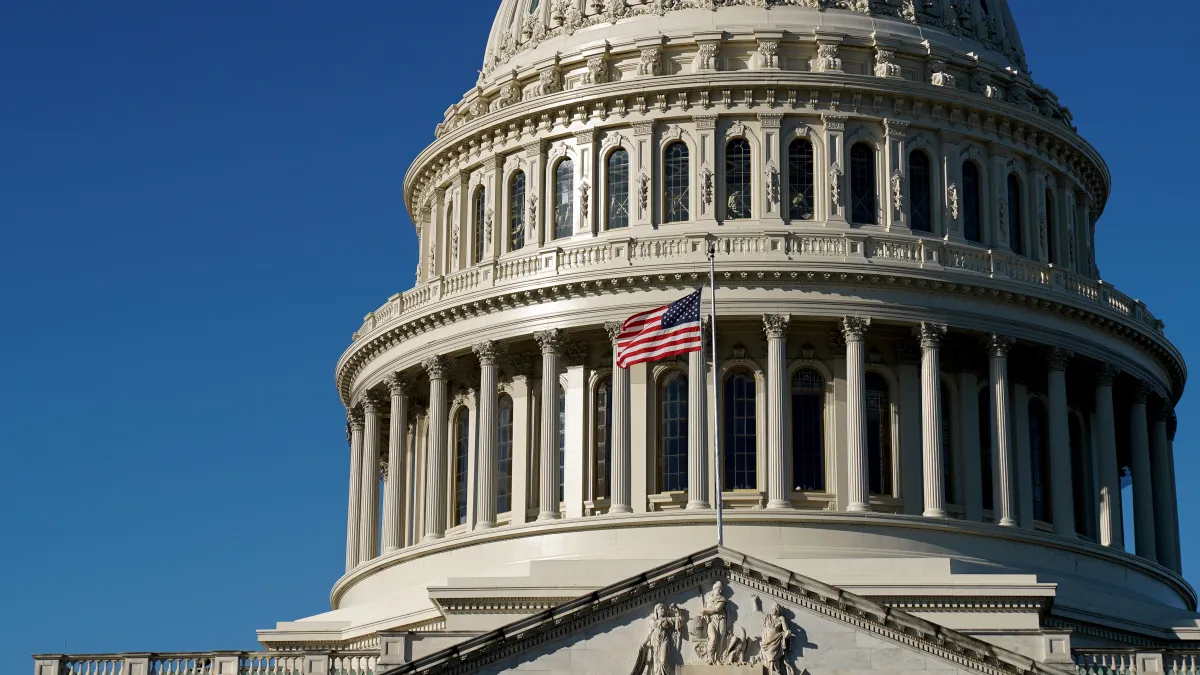
The massive reconciliation bill bearing much of President Trump's economic agenda would reward upper-income households while hurting low-income ones, the Congressional Budget Office said Thursday in a new analysis. The bill passed the House in May and is currently under consideration in the Senate.
In response to a request by Democratic lawmakers, the CBO analyzed how the bill would affect people at different income levels. CBO analysts concluded that while all U.S. households would “gain resources” on average between 2026 and 2034 as a result of the legislation, the benefits would not be evenly distributed.
“The agency estimates that in general, resources would decrease for households toward the bottom of the income distribution, whereas resources would increase for households in the middle and top of the income distribution,” CBO Director Phillip Swagel said in a letter to Reps. Brendan Boyle, the senior Democrat on the budget committee, and Hakeem Jeffries, the House minority leader.
The big picture: Accounting for changes in tax levels and cash transfers, the bill is projected to increase total household resources by $3.1 trillion in aggregate, mostly through tax cuts. At the same time, the bill would reduce federal and state in-kind benefits by $1 trillion, largely through reduced spending on food assistance and Medicaid.
States would make up for some of the losses, but only modestly, with the CBO estimating that states would add about $10 billion to household resources as they respond to cuts in federal spending. Other federal spending in the bill, including outlays for defense, border security and infrastructure, would add about $129 billion to household resources, CBO said.
Distributional details: CBO estimates that households in the bottom 10% of all incomes would see a loss of about $1,600 in resources over the 2026–2034 period, relative to the baseline. That loss, equivalent to about 3.9% of projected income, is driven by reduced support for programs like Medicaid and SNAP, or food stamps.
Households in the middle 20% would see resources increase by between $500 and $1,000, corresponding to a gain of between 0.5% and 0.8% of projected income.
For the top 10% of households, the bill would increase resources by about $12,000 on average, amounting to 2.3% of their projected income. That gain is driven mostly by a reduction in taxes owed.
Adding in tariffs: Noting that the CBO report doesn’t tackle the impact of all of Trump’s agenda, the Yale Budget Lab released a separate analysis that includes the distributional costs of the president’s aggressive tariff hikes.
Accounting for both the reconciliation bill and increased tariffs, the analysts at Yale estimate that together, the initiatives will reduce after-tax-and-transfer incomes for the bottom 80% of U.S. households. Those in the bottom 10% would see an average reduction in incomes of about 6.5%, while those in the top 10% would see an increase of about 1.5%.
Bessent defends bill: Treasury Secretary Scott Bessent told lawmakers this week that passing the reconciliation bill is crucial, since failing to do so would result in a major tax increase as the 2017 tax cuts expire at the end of the year. Bessent told the Senate Finance Committee Thursday that the resulting “sudden stop” in the economy would hurt “working Americans” most.
Citing an analysis by the White House Council of Economic Advisers that evaluates the reconciliation bill on a dynamic basis, something the CBO score does not do, Bessent said that the legislation would provide enormous benefits to all. “[T]he One Big Beautiful Bill will raise take-home pay between $7,800 and $13,300 for the average family of four,” Bessent said. “It will increase wages between $6,100 to $11,600 for the average worker.”
Democrats in the hearing portrayed the bill very differently, sticking closer to the CBO analysis as they said it cuts taxes for those at the top while reducing health care and nutritional benefits for those at the bottom.
Boyle on Wednesday noted that Bessent, who had difficulty naming independent economists who back Republicans’ rosy economic projections, believes that “right-leaning experts, left-leaning experts, and the nonpartisan Congressional Budget Office are all wrong about Trump's budget bill.”
“I can see why,” Boyle said. “Their bill gives billionaires like him a tax break while kicking millions off their health care.”
Oregon Sen. Ron Wyden put it a bit more colorfully Thursday. “It is caviar over kids,” he said of the GOP plan. “It is Mar-a-Lago over the middle class.”